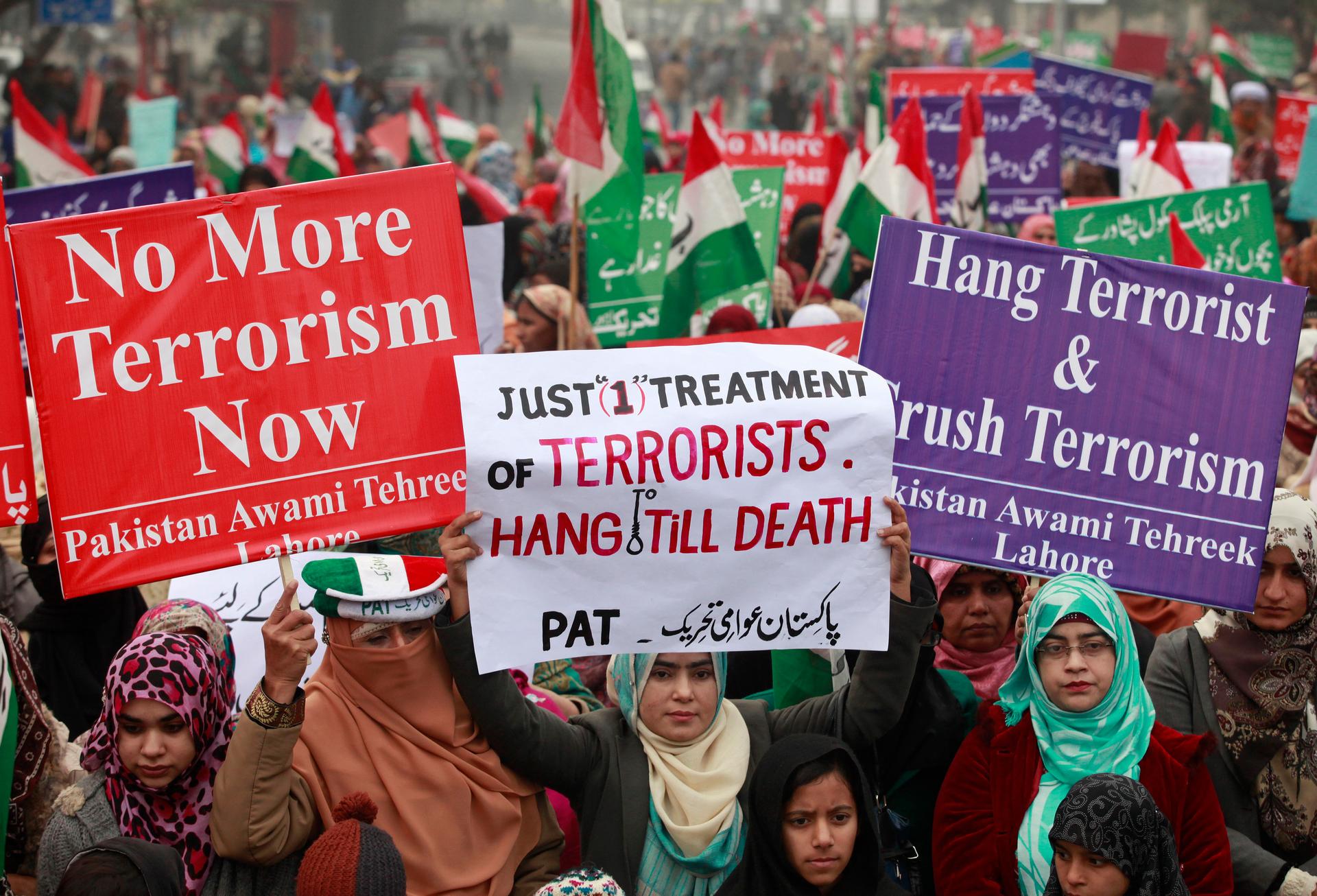Pakistan’s patience with terrorism may finally have run out
Supporters of Pakistani political party Pakistan Awami Tehreek hold signs to condemn the attack by Taliban gunmen on the Army Public School in Peshawar during a rally in Lahore on December 21, 2014.
While Pakistan has seemed more or less united in its outrage over the attack on a Peshawar school on Monday, there has been considerable soul-searching among Pakistanis over whether terrorist groups are tolerated by certain powerful political factions.
Akbar Ahmed, a professor at American University and Pakistan’s former ambassador to the United Kingdom, says “there is a mood now after the Peshawar massacre in Pakistan to deal firmly and unequivocally with the terrorists."
Yet while the nation appears to be making a shift toward taking a stronger hand with terrorist groups, Ahmed points out there are several nuanced factions within Pakistan that might not be ready to change.
Those comments by Nawaz Sharif, Pakistan's prime minister, are particularly significant, Ahmed says. Sharif’s party, the Muslim League, has historically tended to be “softer” on the Taliban.
“These are indications that Pakistan is going to start taking this threat very seriously,” he says. “They’re recognizing that this is not only about the United States — this is Pakistan’s problem, and it must be solved. It can not go on like this or the state itself is in danger of unraveling.”
This story is based on an interview from PRI's The Takeaway, a public radio program that invites you to be part of the American conversation.
